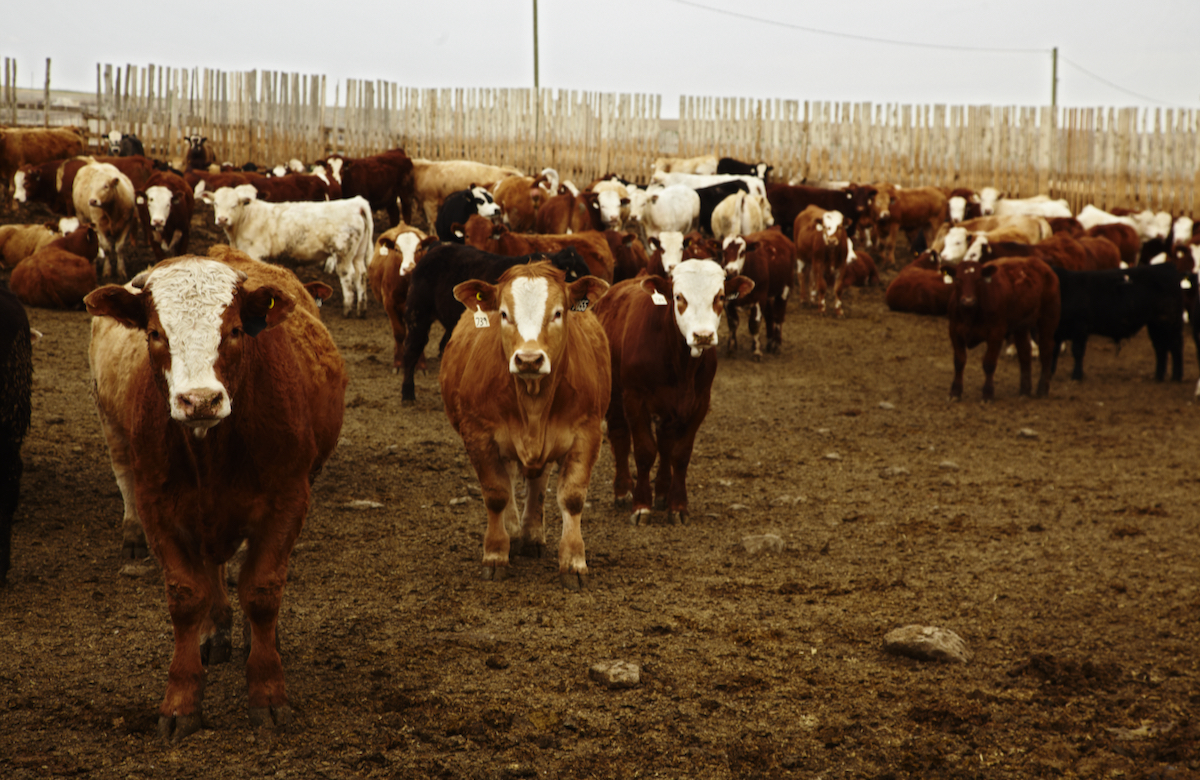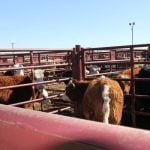Federal Liberal and NDP politicians say the recommendations of a Parliamentary food safety subcommittee examining last summer’s listeriosis outbreak show the need for a full public inquiry.
The report, released Thursday, “recommends what Liberals have been saying for months: we need a public inquiry that will examine all of the facts around this public health crisis — a crisis that cost 22 people their lives,” P.E.I. MP and Liberal agriculture critic Wayne Easter said Friday.
“Only an inquiry will publicly reveal all the facts and help us re-establish public confidence in the federal oversight of food safety.”
Read Also

U.S. livestock: Cattle at fresh highs, hogs weaken
Cattle futures on the Chicago Mercantile Exchange climbed to fresh highs on Tuesday, as tight supplies and the ongoing closure…
The subcommittee’s report, as well as an independent investigator’s report commissioned by the federal government, follow the outbreak of listeriosis that began last August involving a specific listeria monocytogenes strain that sickened 57 people in seven provinces from B.C. to New Brunswick, including 41 people in Ontario.
The strain was tracked to prepared deli meats from Maple Leaf Foods’ Bartor Road meat plant No. 97B in Toronto.
Among those 57 cases, the listeria strain in question was ruled to be the “underlying or contributing cause” in the deaths of 22 people, including 16 in Ontario alone.
Maple Leaf responded last summer by launching a major and well-publicized product recall that crossed over into other food brands using product from the facility. The Toronto plant was shut down Aug. 20 and has since been cleaned and resumed production.
Testimony, evidence
Carolyn Bennett, the Liberals’ health critic, said a full public inquiry with the power to compel witnesses to testify and to require evidence to be produced would provide guidance in drafting needed legislation.
Such legislation, she said, would ensure the federal Public Health Agency and Chief Public Health Officer have complete independence of action, free from ministerial or departmental interference, in a future public health situation of this scope.
The federal Conservative government, she said, “appointed their own investigator to make private inquires and issue a private report to the minister of agriculture, who will privately decide what, if anything, will ever be made public of that report. It’s unacceptable.
“While the investigator, Sheila Weatherill, is a well-qualified and respected individual, the criticism remains — the mandate given to her is insufficient to provide the transparency needed when a public health crisis is involved.”
“The principal concerns surround the Canadian Food Inspection Agency (CFIA) and Public Health Agency of Canada during and subsequent to the crisis,” Easter said. “These concerns ranged from the adequacy of our food inspection system, to when the agencies acknowledged that they were made aware of the crisis and the manner in which they responded to it.”
The subcommittee’s report “makes proposals that would guide the government’s future decisions on the safety of our food supply,” the federal New Democrats said in a separate release.
NDP food safety critic Malcolm Allen said Thursday that the report shows the Chief Public Health Officer of Canada “must be independent from government and ministerial influence in order to truly hold the confidence of Canadians in times of crisis.
“During the listeriosis crisis of 2008, the vacuum of leadership from government was filled by industry. This is unacceptable and must be rectified so that Canadians can again have faith in their food supply.”
But Saskatchewan Conservative MP David Anderson said that while the subcommittee did a “thorough job” examining the listeria outbreak, out of the 77 witnesses that appeared, only one called for a public inquiry.
“With the exception of this one extreme recommendation, the members of the committee worked together and co-operatively on this report,” Anderson said in a separate release Thursday. “It’s unfortunate that after we finished hearing witnesses the Opposition decided to try to use this for their political ends.”
For that reason, he said, the report came with a dissenting opinion appended to it, with recommendations supported by the Conservatives’ members on the subcommittee.
“Faster identification”
Reviewing the subcommittee’s recommendations in an entry Thursday on Maple Leaf’s food safety blog, company CEO Michael McCain wrote that Maple Leaf also “continue(s) to believe that the patchwork of existing regulatory regimes be pulled together as one national standard.
“Consumers shouldn’t need to worry about whether the food they purchase is made in a federally or provincially regulated plant or imported from other countries. All food for sale in Canada should meet a consistent and enforced standard.”
Also, McCain wrote, Maple Leaf “supports the call for a comprehensive review of CFIA resources, recognizing that there must be sufficient inspectors to ensure compliance with tough new standards with the necessary training to conduct sophisticated root cause analysis of test results to identify potential risks.”
More generally, he wrote, Maple Leaf “continues to advocate for any changes that result in faster identification of proven food safety risk, whether through increased intergovernmental and agency co-ordination or through accelerated testing and expansion of laboratory capacity.”
Maple Leaf, he wrote, has pledged to “implement ongoing improvements” relating to food safety as new processes and technology become available.
“After the tragedy of last August, which resulted in the death of 22 Canadians, it is our responsibility to be a leader in food safety — a responsibility we take extremely seriously.”















